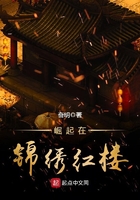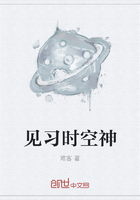"But you will sup with us, at any rate," said the old man. "In such a crisis you ought to exchange rings with Lallier's daughter.""Very well, I will go and fetch her," said Christophe.
The young man was distrustful of his father's stability in the matter.
The old man's character was not yet fully known to him. He ran up to his room, dressed himself, took a valise, came downstairs softly and laid it on a counter in the shop, together with his rapier and cloak.
"What the devil are you doing?" asked his father, hearing him.
Christophe came up to the old man and kissed him on both cheeks.
"I don't want any one to see my preparations for departure, and I have put them on a counter in the shop," he whispered.
"Here is the letter," said his father.
Christophe took the paper and went out as if to fetch his young neighbor.
A few moments after his departure the goodman Lallier and his daughter arrived, preceded by a servant-woman, bearing three bottles of old wine.
"Well, where is Christophe?" said old Lecamus.
"Christophe!" exclaimed Babette. "We have not seen him.""Ha! ha! my son is a bold scamp! He tricks me as if I had no beard. My dear crony, what think you he will turn out to be? We live in days when the children have more sense than their fathers.""Why, the quarter has long been saying he is in some mischief," said Lallier.
"Excuse him on that point, crony," said the furrier. "Youth is foolish; it runs after new things; but Babette will keep him quiet;she is newer than Calvin."
Babette smiled; she loved Christophe, and was angry when anything was said against him. She was one of those daughters of the old bourgeoisie brought up under the eyes of a mother who never left her.
Her bearing was gentle and correct as her face; she always wore woollen stuffs of gray, harmonious in tone; her chemisette, simply pleated, contrasted its whiteness against the gown. Her cap of brown velvet was like an infant's coif, but it was trimmed with a ruche and lappets of tanned gauze, that is, of a tan color, which came down on each side of her face. Though fair and white as a true blonde, she seemed to be shrewd and roguish, all the while trying to hide her roguishness under the air and manner of a well-trained girl. While the two servant-women went and came, laying the cloth and placing the jugs, the great pewter dishes, and the knives and forks, the jeweller and his daughter, the furrier and his wife, sat before the tall chimney-piece draped with lambrequins of red serge and black fringes, and were talking of trifles. Babette asked once or twice where Christophe could be, and the father and mother of the young Huguenot gave evasive answers; but when the two families were seated at table, and the two servants had retired to the kitchen, Lecamus said to his future daughter-in-law:--"Christophe has gone to court."
"To Blois! Such a journey as that without bidding me good-bye!" she said.
"The matter was pressing," said the old mother.















